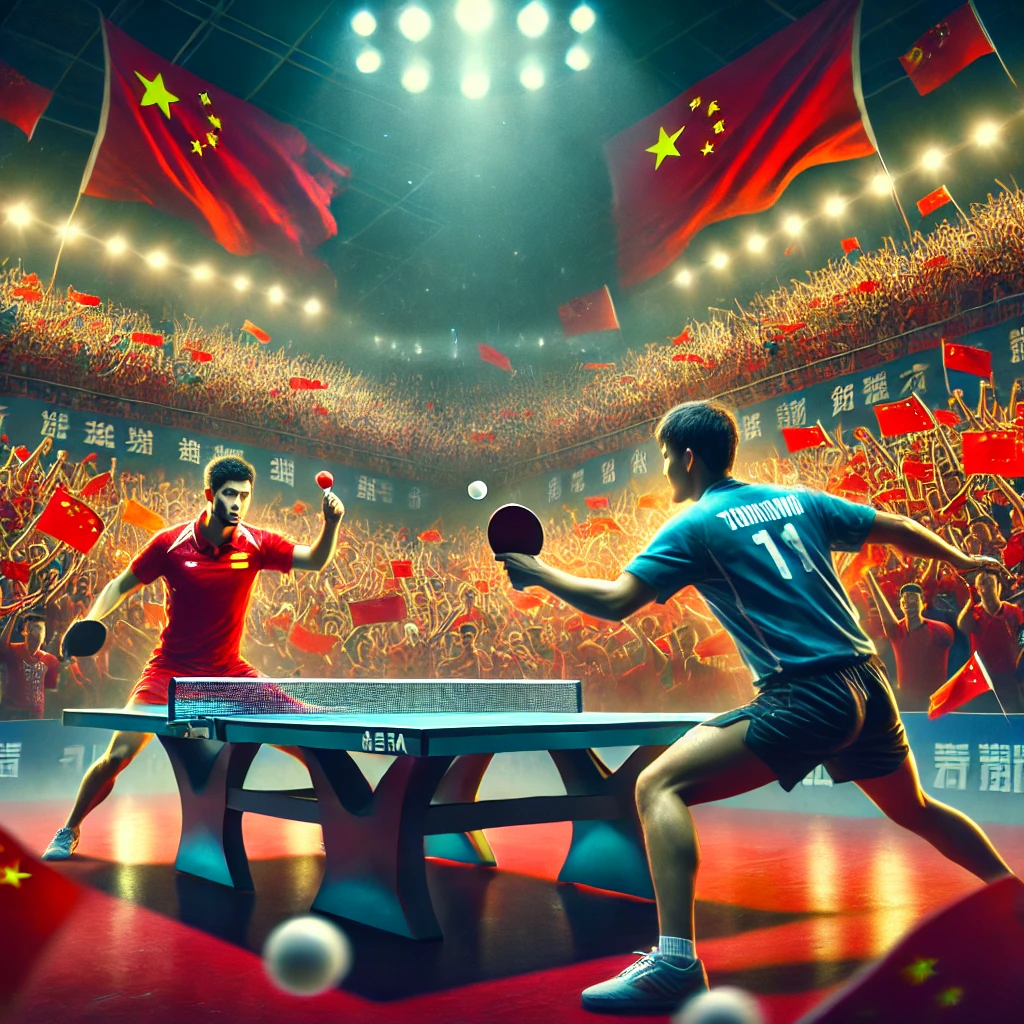
Following the competitions that took place during the Paris 2024 Olympic Games, existing debates on the evolution of fan culture in sports have resurfaced in China. The Chinese Table Tennis Association (CTTA) has decided to issue a statement condemning toxic fan culture and expressing its full support for a crackdown on any crime and violation.
In the statement, the CTTA made its stance clear: “The body will collect evidence and hold accountable any organisation or individual who engages in insults, defamation, slander or other forms of malicious attacks against the Chinese table tennis team or its members online or in other public places.”
China’s Ministry of Public Security has handled a case in Shandong Province in eastern China, where a 23-year-old man fabricated a defamatory article questioning the legitimacy of a Chinese Olympic champion’s victory. Another man from Hebei Province shared the article widely online. Both received administrative penalties. In Henan Province in central China, an 18-year-old woman faced administrative punishment for publicly insulting a gymnast on social media.
The ministry stressed that the internet is not a “lawless zone” and warned against spreading false information or engaging in personal attacks.
When obsession with image overrides respect for the game
“Most of these so-called fans do not understand or appreciate the professional skills or talents of famous athletes. Instead, they tend to focus solely on their image and appearance,” Wang Dazhao, a Beijing-based sports commentator, explained to the Global Times. “In supporting their idols, fans in this toxic culture do not see teammates, only enemies. Anyone who hinders their idol’s quest for victory becomes a target for attack.”
Gu Xin, who has followed table tennis for more than 10 years, says she tries hard to distinguish between those who are fans of the sport and those who are “personality fans.” In her opinion, true fans of the sport analyse the matches and accept the results, while the other group seems to adhere to the idea that “I must hate whoever defeats my idol” and believes it is okay to regularly look down on other teammates and competitors. “They don’t love the sport itself.”
These types of “obsessive” fans are quick to mobilize when they feel their idol has been wronged or disrespected – unleashing insults online and even spreading potentially damaging rumours about the “enemy party.” They are also self-regulating: Fan club accounts on social media can be attacked simply for posting positive content about another athlete, leading die-hard fans to question their “loyalty” and “purity.”
National team coach Chen Qi, for example, was criticised for saying that “winning all the time is actually not good for development” and suggesting that online attacks are unacceptable. His comments sparked a backlash. Some people even called for his dismissal.
The Global Times reported that before the 2016 Rio Olympics, it was rare to see more than a few dozen fans gathered at the airport to greet national teams returning home. The majority of the crowd was usually made up of journalists, with only a handful of supporters present.
However, the chaotic speed of growth within some Chinese sports fan communities from that year to 2024 presents several problems, particularly extreme behaviors.
These individuals, who pair athletes or public figures as “couples” or “matches,” create specific fan organizations. They share related photos and videos on social media, flood the comment sections with their opinions, and even write fan fiction. All of this severely impacts other fans’ and athletes’ viewing experience of a healthier, gentler “other version” of the sport.
Excessive support also disrupts competitions, with fans causing disturbances through loud cheering and flash photography during matches. This ends up causing the opposite effect to what they are supposed to be intended to: it significantly impairs athletes’ performance in the game. Beyond disrupting training and matches, they also damage the harmonious atmosphere between competitors.
It is difficult to say when China’s fanquan or “fan circle” culture began to take hold in the world of sport, especially in table tennis. The intense support that some players receive has helped raise their popularity to a whole new level. However, this burning passion has led to some athletes feeling great pressure or having to endure certain unpleasant situations.
Typically, people who immerse themselves in fan circle culture believe that they are helping develop their idol’s career. Although they cannot contribute in an athletic sense, their goal is to provide value by enhancing their status through the entertainment industry.
After studying the phenomenon, Meng Wei, a researcher at the Chinese Academy of Social Sciences, found that the transgressive behavior exhibited by some fans is just a symptom of something much bigger. Wei says that, in fact, the real precursor and regulator of these situations is a vast celebrity industry involving talent agencies, photographers, social platforms, professional fan club coordinators, and internet trolls.
Thus, “fan culture” is considered a subculture, originating in the entertainment industry. It is based on idol artists and the fan economy.
So-called “full-time fans” often have close ties to celebrity management companies and mobilize others to participate in surveys and other activities that boost an athlete’s profile. As a result, a sophisticated industrial chain has emerged, with companies like StarAid supposedly generating huge profits by manipulating online traffic to ensure an athlete is regularly trending on social media.
Source: https://reporteasia.com/cultura/2024/08/26/peligros-cultura-fanaticos-china/

